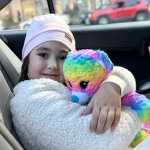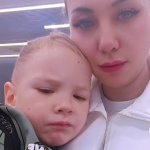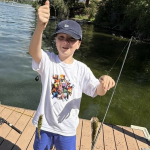Marijuana — A Cure for Autism?
Exploring Cannabis Compounds for Autism Symptoms
Autism spectrum disorders (ASD), being complex neurodevelopmental conditions, are often accompanied by seizures, sleep disturbances, gastrointestinal issues, and more. These complications significantly affect development, as well as social and cognitive functions. It’s possible that certain substances found in marijuana could help reduce the severity of these symptoms.
In 2018, the U.S. Food and Drug Administration (FDA) approved Epidiolex — the first and still the only cannabis-derived medication recommended as an anticonvulsant. Its scope is limited; it is officially prescribed only for Lennox-Gastaut syndrome, though it is theoretically applicable to epilepsy and autism. According to its developers, the therapeutic effect comes from cannabidiol (CBD), a compound extracted from marijuana that does not have psychoactive effects, unlike tetrahydrocannabinol (THC).
Therapeutic Promise of Cannabidiol
Dr. Orrin Devinsky, Professor of Neurology, Neurosurgery, and Psychiatry and Director of the Comprehensive Epilepsy Center at NYU Langone Medical Center — who led clinical trials of the drug — reported that its use reduced seizure frequency in patients. “The official approval of Epidiolex changed the regulatory landscape for cannabinoid-based products,” he said. “In the future, this will greatly simplify and reduce the cost of further research to determine whether marijuana can help not only with seizures, but also with other autism-related symptoms.”
Surveys of parents indicated that Epidiolex did bring relief to some autistic children. However, Devinsky emphasized that more evidence is needed to ensure that such medications are safe for treating ASD — especially in children.
Ongoing Clinical Trials in the U.S.
Currently, three major clinical trials are underway in the United States to test the hypothesis that cannabinoids may help reduce anxiety or aggression in individuals with autism:
- The first is examining the effects of cannabidivarin (CBD-V) on aggression and social behavior in children.
- The second focuses on how CBD affects aggression.
- The third aims to determine whether CBD can reduce anxiety in high-functioning autistic children.
While the outcomes are not yet known, these trials have already sparked a broader debate over the effectiveness of marijuana-derived compounds in addressing autism symptoms. There is no doubt that these drugs cannot cure autism itself. However, from a practical perspective, it’s essential to determine appropriate dosing to achieve the best possible results.
“I’d be surprised if these drugs didn’t help at least some children,” said Dr. Javier Castellanos, Professor of Child and Adolescent Psychiatry at New York University, who leads one of the trials. “But we still don’t know when they should be recommended or what the optimal dose is. There’s much more to learn.”
Unresolved Questions and Alternative Approaches
Since research into marijuana-based compounds for neurodevelopmental disorders began only recently, it’s too early to draw definitive conclusions. These drugs must still undergo testing for safety and tolerability, especially if intended for use in children. As a result, their effectiveness remains uncertain — in contrast to a treatment method that has already demonstrated its reliability, efficacy, and safety: stem cell therapy.
Stem Cell Therapy — A Proven Method
Stem cell therapy has been successfully used for years to treat autism spectrum disorders and their symptoms. The method involves transplanting stem cells — the body’s foundational “building blocks” — which possess the unique ability to transform into other cell types and replace damaged ones. In autism treatment, this leads to the normalization of brain and nervous system function, stabilization of behavior, and reduction — sometimes even full disappearance — of symptoms. These effects are long-lasting, and in many cases, lifelong, significantly enhancing the impact of other therapeutic interventions.
Due to its effectiveness and potential, stem cell therapy has gained growing recognition and may eventually become a mainstream treatment. For now, it is offered by a limited number of advanced clinics worldwide. Among them is the Mardaleishvili Medical Center, which has accumulated extensive experience in stem cell transplantation. The center’s highly trained specialists use state-of-the-art equipment to deliver the best possible outcomes.
Treatment at this clinic is more affordable than in other countries with developed healthcare systems, and patients also receive assistance with travel planning and other logistics — including temporary accommodations during the rehabilitation period.
Choose Stem Cell Therapy — and You May No Longer Need Medications!
Autism Treatment Center Videos
Autism treatment with own stem cells
Cord blood association congress
International Quality Crown
Autism Treatment Reviews
Autism treatment with own stem cells
The story of Alessandro (6 years old)
Autism Patient Testimonial - Stem Cell Treatment
Clients Testimonials

Lidiya — Elina’s mother Read More

Anna – Sasha’s mother Read More

Amirkhon’s father — Tokhir Read More

Dilana’s mother Read More

Irina and Stefan – Ilya’s parents Read More












